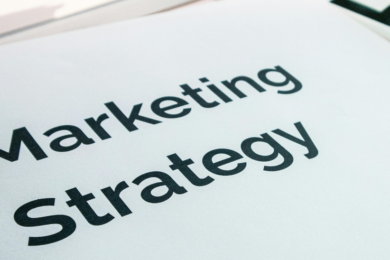Five Marketing Predictions for 2025
Jan 2, 2025By this point, most marketers have become accustomed to the never ending whirlwind of change and evolution in the digital…

Welcome back to AI Unleashed! The blog series by Extramile Digital where we explore the fascinating world of artificial intelligence.
In previous instalments we have dived into the origins of AI, discussed the dawn of the AI era and today, in our third instalment, we will delve into a critical aspect of artificial intelligence, the ethical implications.
Whilst AI has a vast amount of potential benefits, ethical challenges continue to arise, this includes privacy concerns, algorithm bias spreading social misinformation and the impact of AI on job displacement.

As we know, AI is highly dependent on data. Afterall, it is this data that allows artificial intelligence to continue expanding its knowledge and improve its decision making.
This collection of data opens the door to potential violations. AI algorithms have grown so complex that even the most knowledgeable users may not have a complete understanding on just how much personal data AI is harvesting, processing and storing.
Let’s be honest, most of us are fine with our Netflix accounts giving us personalised recommendations based on our viewing behaviour.
The majority of people are happy to let google use their search data to send them targeted advertising and most are even happy to let apps store our financial information to make paying for items even quicker.
This data, however, is collected with our consent and in line with data regulations.
The potential issue with AI in regards to data collection and handling is its apparent lack of transparency, in some instances users may not even be aware that they are interacting with artificial intelligence in the first place, so therefore don’t truly understand where their data is going.
Large tech companies have on more than one occasion been found guilty of malpractice in the storage and sharing of their users personal data, even selling it to third parties.
This means that developers of AI need to find a balance between collecting data for AI advancements and adopting a transparent approach in the use of personal data, keeping the public in the loop of its developments and maintaining accountability.
Like most technology, AI can unfortunately fall into the hands of people with bad intentions.
For instance, AI powered social media bots that are programmed to post controversial misinformation and even hate speech, creating false narrative echo chambers by generating misleading content and manipulating trending topics and popular hashtags to gain traction.
Ironically, to combat this, different forms of artificial intelligence are being utilised by social media platforms to help spot and combat malicious activity.
Another easy to see example of algorithm bias is to type ‘ten best people of all time’ into google search and then count how many women appear amongst the top results. Spoiler alerts its 0, sorry ladies…
This is a simple result of the search engine AI only being able to operate on the data sets that it is trained on, I’m not accusing google of being gender biassed.
Fortunately, these discrepancies are being addressed, in fact, developers are actively working on artificial intelligence that is fairness aware, which should lead to AI that is able to better understand equality and differentiate between positive and negative social media interactions more effectively.

The idea of job displacement caused by AI and gradual atomisation is not exactly a new one.
However, the recent rapid advancements of artificial intelligence has sparked fresh concerns about the future of work.
As AI systems become more capable, certain tasks and job roles may adopt a more automated approach, leading to potential changes in the job market.
Whilst this a worry to some, it is important to remember that as the workplace changes it can also present potential opportunities.
By upskilling to become more adept at incorporating AI into your work processes, you can be a thought leader within your organisation, paving the way for innovation and growth.
Using AI to increase productivity and efficiency in your work processes can serve as a major advantage as it leaves workers with more time to utilise creativity and critical thinking.
For now at least, AI is unable to truly replicate human behaviour and emotional intelligence in the majority of job roles, meaning there still remains a need for people in the workplace.
Artificial intelligence has the potential to revolutionise industries, improve efficiency and enhance our lives in countless ways.
However, it is essential for AI developers to consider the ethical implications of such a groundbreaking technology.
As artificial intelligence plays an ever increasing part in both commercial and domestic applications, governance, transparent policies and clear regulations will need to be defined to ensure that AI is developed around an ethical framework.
The landscape surrounding ethical AI is certainly a complicated one, with many layers.
The silver lining is that it will improve, with proper development AI will be able to mitigate data bias, account for equality and remove any potential discrimination from its decision making.
And there we have it, an overview of just some of the ethical issues that arise with the advancement of artificial intelligence. There are many more that could be discussed, in-fact, the subject of AI ethics warrants an entire series of its own (maybe another time) but for now we have raised some of the most prominent issues faced today when balancing AI advancement with ethical practice.
In the next instalment of AI Unleashed (on a less serious note), we will be exploring the top 5 free AI tools that anyone can use!


By this point, most marketers have become accustomed to the never ending whirlwind of change and evolution in the digital…

In high-stakes sectors like defence and aerospace, effective marketing is about building trust, demonstrating unwavering reliability and navigating a unique…

Staying top of mind with decision makers is more challenging than ever in competitive B2B sectors. Prospects are flooded with…

As 2025 draws to a close, it’s time to reflect on how Google’s confirmed SEO algorithm changes played out and…